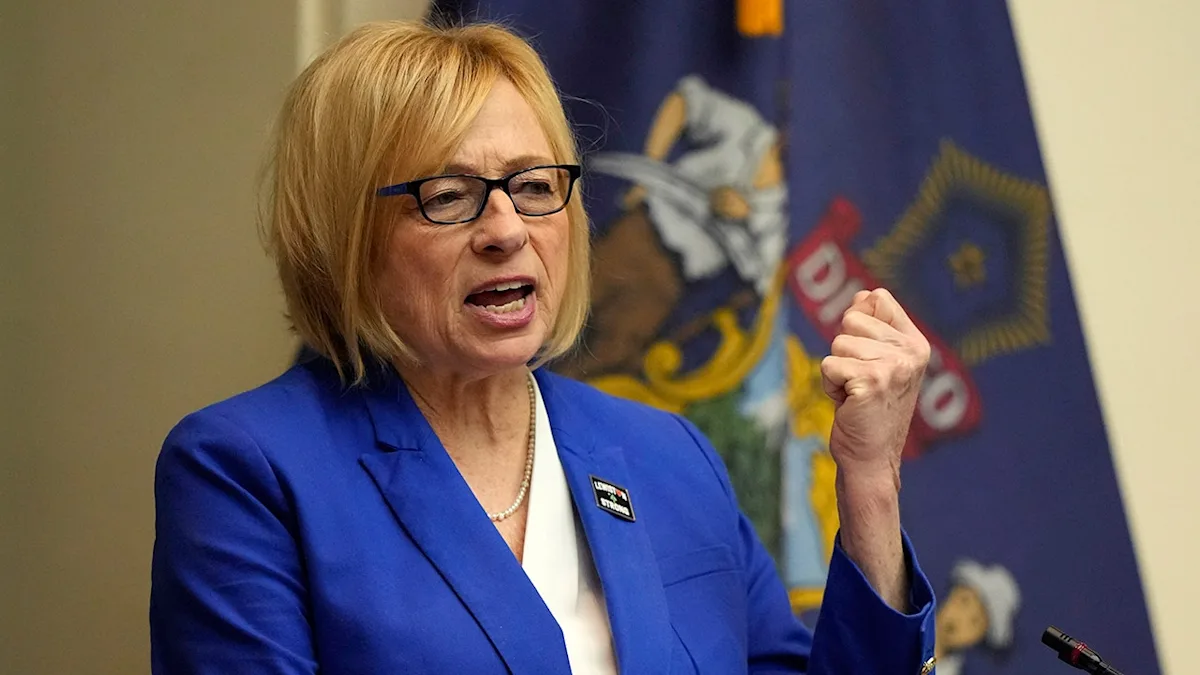More than 30 years after Maine Governor Janet Mills sidestepped public scrutiny over an explosive federal drug probe, Republican lawmakers are digging up the past and demanding answers.
At the center of the political firestorm: over 6,000 pages of case files tied to a decades-old cocaine investigation involving Mills, a Democrat who is now being floated as a potential U.S. Senate candidate. The National Republican Senatorial Committee (NRSC) wants those documents and isn’t backing down.
Secret Records and a Senate Wild Card

In April, the NRSC filed a Freedom of Information Act (FOIA) request with the National Archives and Records Administration (NARA), seeking the full file on Mills’ 1990 federal investigation for alleged cocaine use.
But things got murky fast. While NARA initially agreed to review the case, officials later said 3,000 of the pages were exempt from release due to their inclusion of grand jury testimony.
Now, the NRSC is appealing the decision, arguing that public interest in the case especially as speculation builds over Mills’ next political move outweighs the exemption.
Recently unearthed a 1995 Department of Justice memo that directly challenges Mills’ long-standing claim that the investigation was a political hit job. The document states that investigators acted properly and found no misconduct.
“Maine apparently has a secret police force”
Back in early 1990, Mills was serving as a district attorney when a drug suspect accused her of using cocaine prompting a multi-agency investigation led by the U.S. Attorney’s Office, the DEA, and Maine’s Bureau of Intergovernmental Drug Enforcement (BIDE).
No charges were ever filed. Mills has consistently dismissed the case as politically charged retribution for her criticism of BIDE and its inflated arrest stats.
“It’s scary,” Mills told the Portland Press Herald in November 1991.
“Maine apparently has a secret police force at work that can ruin the reputation of any who opposes it.”
That statement didn’t age quietly. According to the DOJ memo, the real story was less about politics and more about process finding no wrongdoing on the part of investigators.
Mills’ Own FOIA Request — and Silence Since
Strikingly, this isn’t the first time someone tried to unseal the files.
In 1992, Mills herself submitted a FOIA request for the same documents. According to The Ellsworth American, NARA brushed her off at the time, saying they were simply “too busy” to process it.
When asked whether she’d release the documents if she got them, Mills said, “I’d first have to see what was in it.”
There’s no public record that she ever received or released the materials.
And the rest of the non-exempt pages? Roughly 3,195 documents not protected by the grand jury exemption are subject to an 11-year processing delay.
Lawsuits, Leaks, and Vanished Court Records
The old case is packed with legal drama. In December 1990, WCSH-TV aired a report claiming Mills was under investigation by a federal grand jury, citing unnamed law enforcement sources. She later sued the journalist for libel and slander, alleging the press had been tipped off by BIDE agents.
The outcome of that lawsuit is a mystery. Court records show the docket was discarded in 2015, per disposal policy. However, a 1991 Lewiston Sun-Journal article reported that a judge tossed out Mills’ attempt to “end drug probe rumors.”
“What the f—?” — D.C. Confrontation Goes Viral

The controversy returned to center stage this month when Mills, caught off guard in Washington, D.C., was asked if “sniffing cocaine at work” was a human right.
She fired back, “What the f—?”
Mills is term-limited and will leave the governor’s office in 2026. While she said in April that she didn’t “plan to run for another office,” she also added, “things change week to week, month to month.”
With Republican Sen. Susan Collins seeking reelection in 2026, Mills could pose a formidable challenge if she enters the race.
Political Theater or Public Reckoning?
For now, the NRSC’s appeal is pending, and the documents remain sealed. But with the 2026 Senate map heating up and Mills staying coy about her next move, expect this decades-old case to remain in the headlines.
Whether it’s a political witch hunt, a transparency battle, or both, the fight for answers has only just begun.



